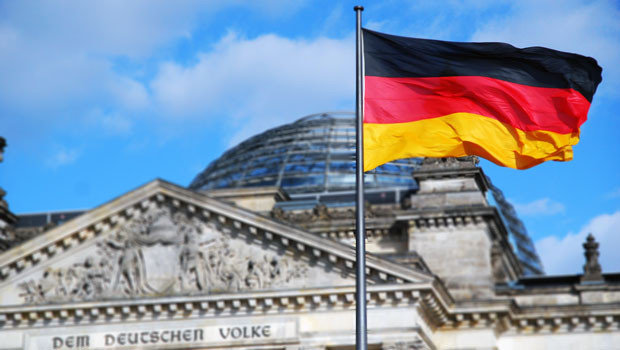German Q3 GDP surprises, recovers to above pre-Covid levels

The euro area's largest economy defied market expectations for a contraction over the three months to September thanks to private consumption.
According to Destatis, German gross domestic product expanded at a quarter-on-quarter pace of 0.3% during the third quarter (consensus: -0.2%) and by 1.2% in annual terms upon price and calendar adjustment.
Significantly, GDP was left standing 0.2% above its pre-Covid level.
Nonetheless, Destatis said in a statement that: "due to the continuing Covid-19 crisis and the impact of the war in Ukraine, these results are subject to larger uncertainties than usual."
The statistics office attributed the gain to private consumption expenditure but the preliminary nature of the data meant that no breakdown was yet available.
Last quarter's GDP growth was achieved in the face of the "difficult" global economic environment, the ongoing pandemic, supply chain problems, rising prices and the war in Ukraine, Destatis added.
Commenting on the latest figures, Claus Vistesen, chief Eurozone economist at Pantheon Macroeconomics, said he believed a leap in auto sales was the "decisive" factor as car registrations had jumped by 13% quarter-on-quarter.
"The Eurozone’s largest economy defied the widely held expectation, including by us, that it entered a recession in the second half of the year, at least until we see revisions.
"[..] The chart shows that German GDP growth is suspended in free air, compared to the crash in the surveys. It’s the hard data that matter, but we still think GDP growth will come off, eventually, pulling the economy into a technical recession."
Earlier, French statistics office INSEE reported that the country's GDP grew at a quarter-on-quarter pace of 0.2%, down from the 0.5% pace seen over the previous three-month stretch, but nevertheless as expected by economists.
Spanish GDP data on the other hand showed that that economy expanded at a quarterly pace of 0.2% over the three months to September (consensus: 0.3%).
Austrian GDP growth printed at down by 0.1% quarter-on-quarter while in annual terms GDP growth slowed from 1.9% in the three months to June to 1.8%.
Belgian GDP also shrank by 0.1% during the latest quarter and in annual terms growth slowed from 1.6% to 1.4%.
However, second quarter GDP was marked up from 0.2% on the quarter to 0.5%.